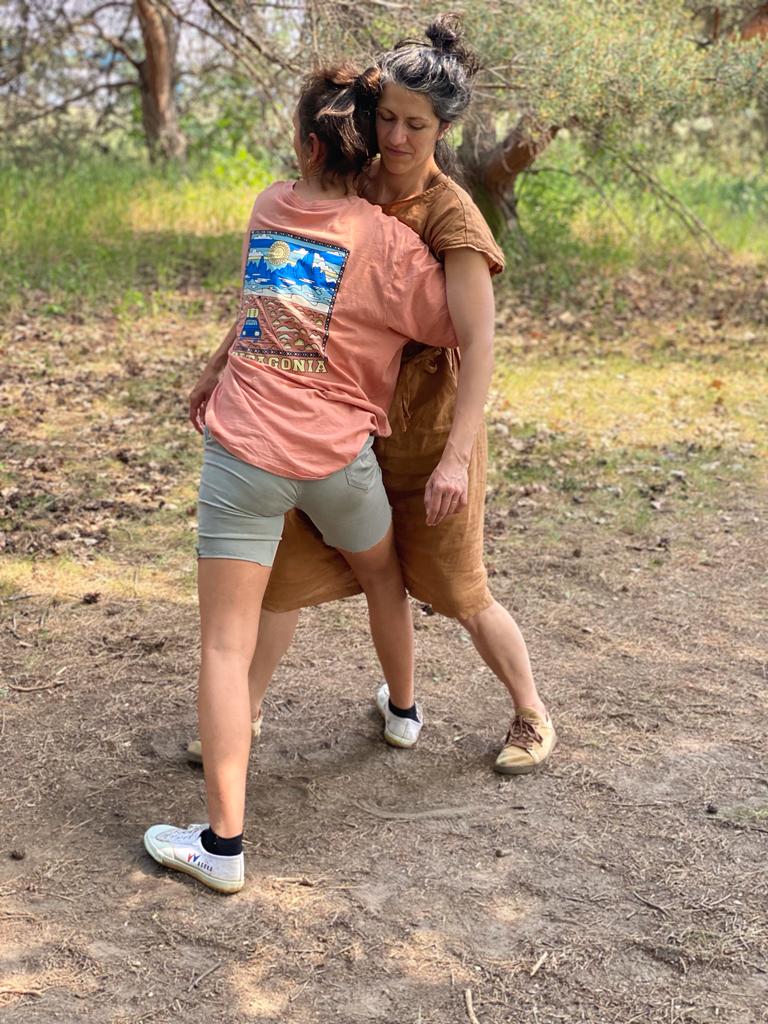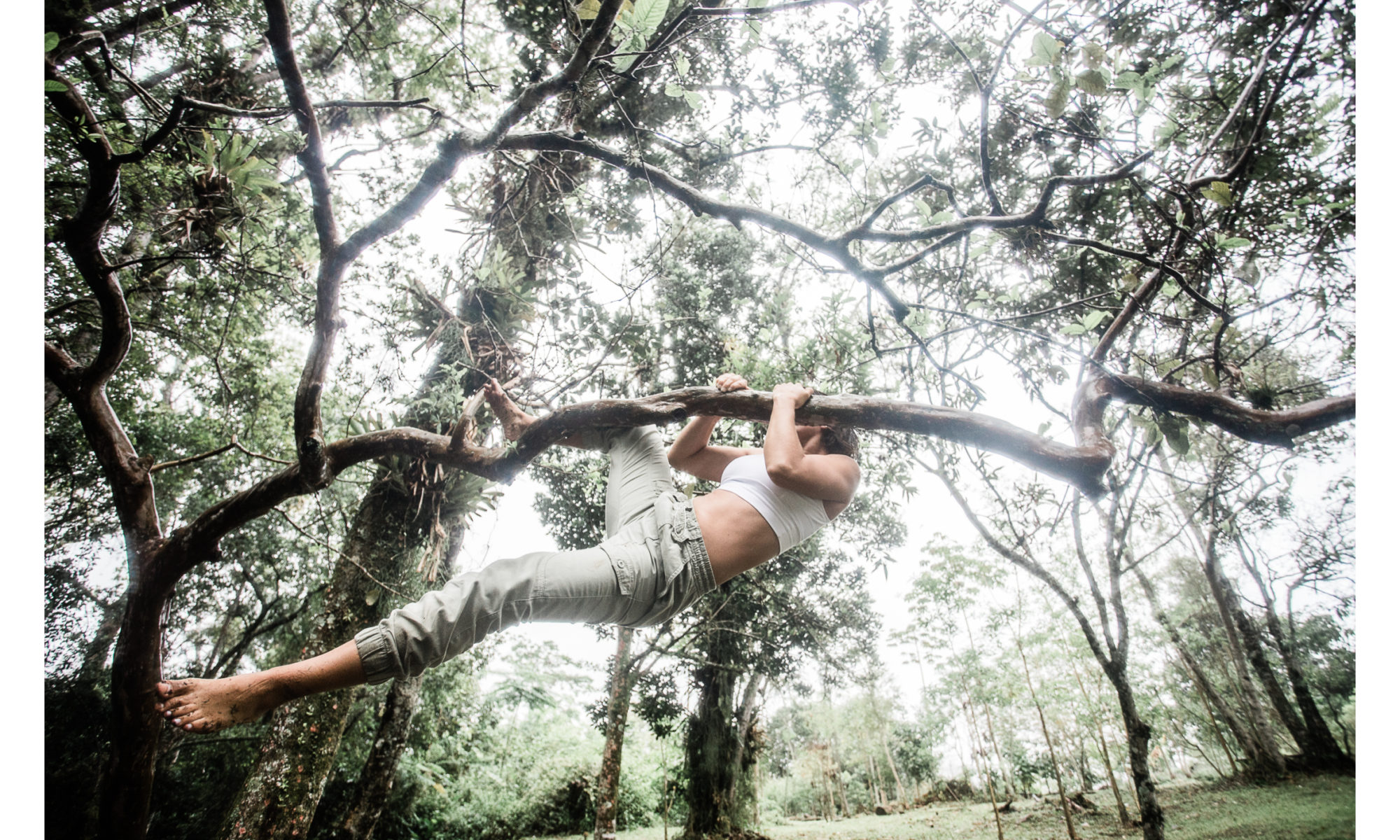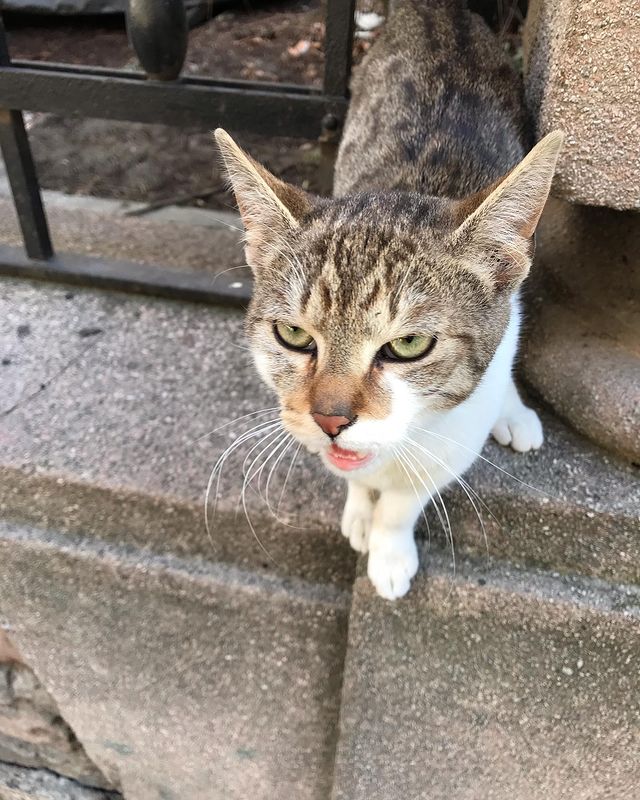
Teaching at the Communication & Partner Work Workshop 2023 with Joseph Bartz and Laura Sol.
How to care about movement in a more essential way?
How can it become something that matters to me because it feels good and supports me instead of becoming another to do on a list?
These are questions that I contemplate quite often, specially when working with people who find a lot of resistance to start a movement practice.
What I observe is that many people tend to restrict the idea of movement to one word: doing exercise. Which often translates in going to the gym, or playing soccer, or doing yoga or or or.
The thing is that movement goes way beyond than exercising. Movement goes way beyond than a specific discipline, or shape or name. As a practice, it offers a more generous way of approaching ourselves and what our bodies can do.
There is a lot of room between going to the gym once a year and running for a marathon and practicing every day 24/7.
Moving regularly is a principle of life. But this principle doesn’t set how movement is or has to look like. It doesn’t mean we have to do this or that exercises. Or practicing this or that sport.
Of course that doing exercises or focusing on one discipline can be VERY helpful for a lot of people. It creates structure, it gives feedback, you can improve a certain skill. But if you think this is it, you are missing the point. It can be way more simple. And maybe this can serve as a relief, specially if you struggle in creating movement in your life.
People can get so stressed about moving more, doing more physical activity and so on. I care about reminding people that moving more can be actually fun, light and detached from pressure. There is a huge potential for lightness and enjoyment when it comes to movement.
But this is not so easy to understand.
It is enough to spend a few minutes on instagram to realize that when it comes to movement and physical practice , the most common associations are able-bodied people looking a certain way, dressing a certain way, showing their flat bellies and muscular bodies and executing things that seem so far away from the reality of most people.
I myself belong in a way to this group. I am able-bodied and through years of a regular physical practice, I am able to “do” certain things like pulling myself up on a bar, or kicking into a handstand. I haven’t asked but I sense that when I publish a video of a day of practice, a lot of people might think I have been doing this since a young child or that I have talent and so on and thus decide we are way too different. Some might find it inspiring, other might get triggered.
What matters to me is movement way more than doing a specific movement. It is a lot of fun to do strength training for me nowadays, but it wasn’t always like that and I now for many people this is just not the case. I also enjoy playing with friends, walking for long time, dancing, fighting. I am curious about movement in general and this truly helps to see it as a practice. As something that will take various shapes throughout my life. And it will never end. It will go way beyond my own existence.
This is what I mean with essential. It is something that was there before me and will keep going.
Movement is part of my life and it will keep developing with me and developing me.
It is something that connects me to other people, that open my sense. It literally can make us see with more clarity, think with more clarity, react to situations with more precision and perceive things with more clarity. It is a physiological phenomena – our whole body is designed for movement – but is also a historical, social and spiritual one – just consider that dancing is one of the most ancient things people have been doing!
Movement is a universal need. But again, this can have various shapes. To move more does not mean to go more often to the gym. Nor to run a marathon. Nor to swim I dont how many meters weekly.
So please, if you are stressing out about the things you are not doing, or how that influencer is showing her abs or how jumping on the jumping class makes you feel bad, maybe you also want to contemplate the same question as me. How can you care about movement in a more essential way? And essential here is something that suits you. That you can relate to. This can be a sport, or the person who is guiding the class, or music, or how it reminds you of something. Maybe this looks like walking in the park or dancing or spending time on the garden.
Keep stretching your eyes. Movement is out there, in the simplicity of rolling on the ground with your child or moving the hips to a song you like.

